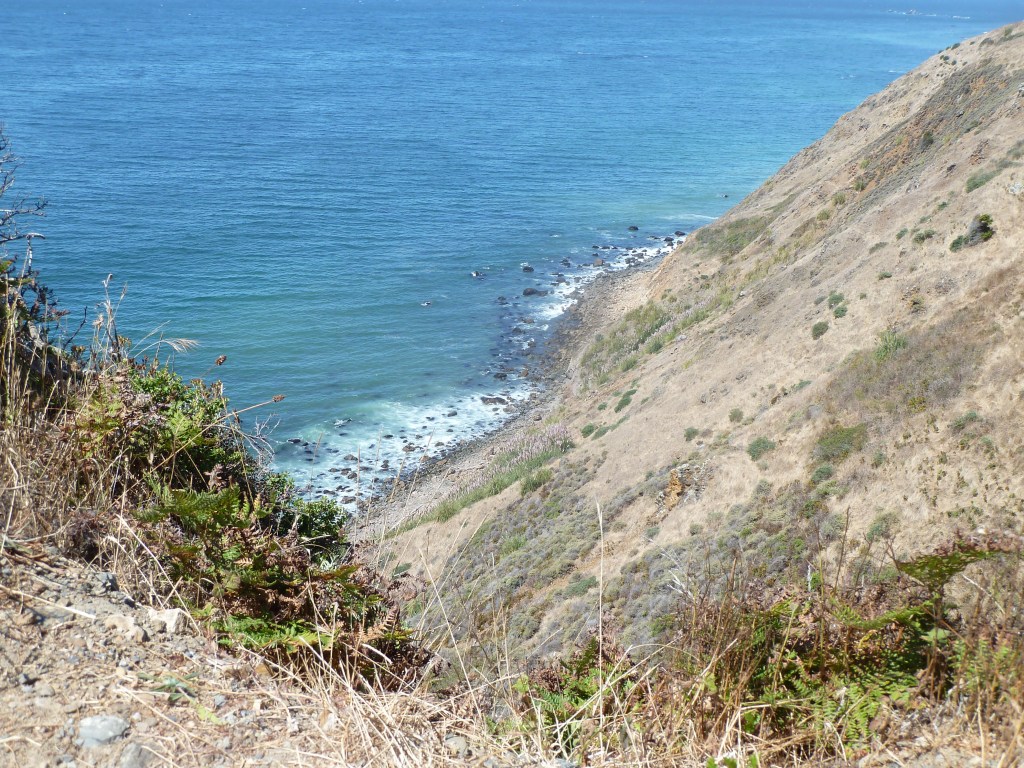
He shared the name of a famous actor. So everywhere we went—the grocery store for apples, the drugstore for aspirin, the liquor store for wine and whiskey—someone asked, Are you—?
No, he’d say, laughing.
He was a novelist. I was too. Or I wanted to be a novelist.
*
For one month we lived together at an artists’ colony outside Chicago, eating dinner with twelve other artists—writers, painters, composers—as is common at such places.
There was a painter, an older woman with long red hair, who often complained—dinner was too rich one night, too bland another, her room too cold one night, then too hot another.
The house we shared sat on a property of fifty acres of restored prairie. The house was old, featuring cramped rooms, narrow staircases, and a cupola. One night at dinner, I referred to the cupola as the Francis Ford Cupola and everyone laughed.
*
I was thirty-four years old at the time—old enough to know better. Or young enough not to want to know better? Now I wonder, what’s better?
*
This was before the novelist’s divorce, before the rumors of his drug troubles, before I would study the photographs on Instagram of him with a new woman and his two blond sons, all of them on a beach, one son doing a cartwheel, the other holding up a seashell, grinning.
This was before I grew tired of reading elaborate plodding novels and the artifice of narrative device, the heaviness of all those pages, before I grew tired of myths and other people’s lives.
*
It will never last, I told him. The young novelist sat on my bed in our old borrowed house and cried. I’d never seen a man cry like that. The bed, I remember, was made of brass.
I had just told him that his marriage-to-come would never last.
He had just told me about the affair he was conducting with another of the artists, the red-haired painter. That can’t have been the word he used: “conducted.” But that’s when he told me they’d been together all week.
Of the woman he was supposed to marry in six months, he said she loved him. It’s hard, he continued, to walk away from that.
Not someone. That.
*
One night, toward the end of our stay, the artists celebrated. The painters opened their studio doors, revealing acrylics and oils in surprising colors; the composers offered tidbits of new compositions, their songs spare and off key; the writers read poems and excerpts from their novels. One described his novel as saturated in myth.
I read a fragment of a short story in which I’d failed to make anything up. Afterward the novelist told me he liked the part where the woman could not hear the man because of static on the landline.
*
The red-headed painter was hard of hearing. Sometimes at dinner, if the conversation among the rest of us became raucous, I could see her turning her hearing aids off.
*
One night, a black-haired composer from San Francisco whispered to me over dinner that if she had any interest in men, which she did not, he was the kind she’d go for. She gestured toward the young novelist.
*
In my small blue room, I slept each night on the brass bed with its lumpy mattress. Every morning, I looked out the window, which overlooked a garden.
Years before, I was told, someone kept logs of the flowers grown on this estate: alyssum, white zinnia, candytuft, dahlias.
*
A few years went by. Finally, I ran into the young novelist at a conference. He was married by then. We agreed to meet up for lunch. Throughout lunch, he looked over my shoulder as famous writers came in the restaurant and left.
*
“Her minimalism exposes my limitations,” the filmmaker said, speaking of his daughter, the filmmaker Sofia Coppola.
*
When I moved to California, I looked up the black-haired composer. We met for coffee in stylish sunny spots in San Francisco or for brunch at Fat Apples in Berkeley. Once, she invited me to dinner at her house. She lived in a remodeled Victorian with a spiral staircase. She’d married by then, a flabby man who’d abandoned a PhD and sounded regretful.
Within the year, our friendship faltered. She wanted to see me more frequently than my schedule allowed and I grew tired of spending our first hour together, over coffee or eggs, going over my failures. There was also the issue of an hour-long subway ride home.
*
Grassland remains an endangered resource with less than one percent of prairie left.
*
During the first week in that borrowed house, I walked through the tall prairie in the early morning hours, which felt like walking through a quivering maze. But allergies got the best of me.
*
The night the young novelist wept on that borrowed brass bed, he said he was sorry. He knew the affair he was having with the composer, that it should have been me. I remember feeling angry at the time but later thinking, maybe he was right.
*
I want to say that from the cupola you could see the tall grass, that you could see it all, but the truth is, I climbed the stairs only once, late at night, alone, and when I looked out, I could see nothing—nothing at all.
✶✶✶✶

Marilyn Abildskov is the author of The Men in My Country. She is the recipient of a Glenna Luschei Prairie Schooner Award, the 2021 Los Angeles Review Short Fiction Award, and honors from the Rona Jaffe Foundation, the Corporation of Yaddo, and the Djerassi Writing Residency. Her essays and short stories have been published in The Southern Review, Ploughshares, Best American Essays, and elsewhere. She lives in the Bay Area and teaches at Saint Mary’s College of California.
✶

William D. Hicks is a writer living in Chicago. He is not the famous comedian Bill Hicks, but when he publishes his memoirs, they will chronicle the life and times of the other Bill Hicks. His poetry has appeared in Horizon Magazine, Breadcrumb Sins, Inwood Indiana Literary Magazine, The Short Humour Site (UK), The Four-Cornered Universe, Save the Last Stall for Me, and Mosaic. His cover art will appear on Anti-Poetry and Sketch.